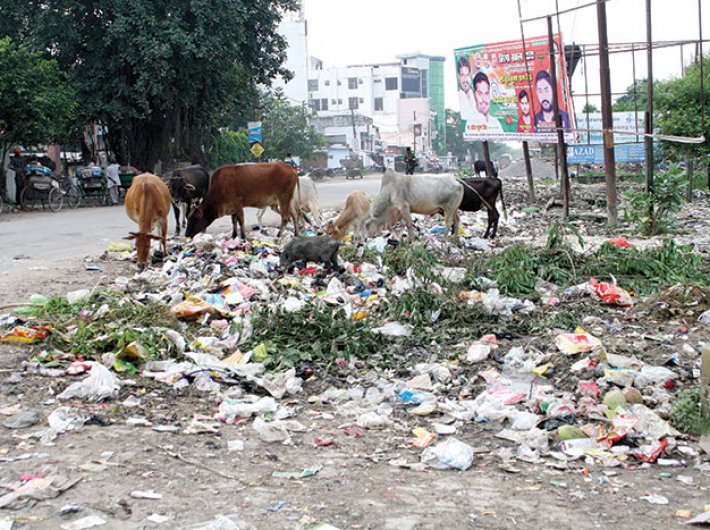India ranks in the top ten for reducing open defecation and improving access to basic sanitation. But there is still a long way to go
India, the world’s second-largest country by population, once again comes out top for the highest number of people without basic sanitation, said a WaterAid report.
The report “Out of Order -The State of the World’s Toilets 2017” said that in India, a staggering 355 million women and girls are still waiting for a toilet; if they were all to stand in a queue, it would stretch around the Earth more than four times!
Read: Getting India to Stop Going Out
There has undoubtedly been immense progress made in improving access to sanitation by working with the Swachh Bharat (Clean India) Mission – with 52 million household toilets built between October 2014 and November 2017, according to government data. India also ranks in the top ten for reducing open defecation and improving access to basic sanitation. But there is still a long way to go, it said.
China, the world’s most populous country, comes in second, with 343 million people without decent toilets. However, it too has made a lot of progress since 2000, when 40% of the population lacked basic sanitation. Africa’s most populous country, Nigeria, is in third place.
Cambodia’s northern neighbour, Laos, is not far behind, reducing open defecation by two-thirds, followed by Nepal. Midway through the list is India, which – with the help of the Swachh Bharat (Clean India) Mission – has reduced the proportion of people defecating in the open by 40%, meaning more than 100 million people no longer face this indignity.
The report noted that reaching all 1.28 billion people in India with basic services is a huge challenge, but change is happening.
“The Indian government has a target of eliminating open defecation by the end of 2019, which has made toilets front-page news. WaterAid has also helped 1,171,000 people in India get decent toilets in the last year, by working with the Swachh Bharat (Clean India) Mission. However, the work is far from done, and the need stretches beyond households to schools and hospitals. According to the World Health Organization, two in five health centres lack basic sanitation, putting patients and health workers at risk of infection.”
The number of people without access to at least basic sanitation stands at 732,207,000 in India.
However, the authorities concerned said that the Water Aid report quotes data from the WHO-UNICEF Joint Monitoring Programme (JMP),which extrapolates sanitation data based on available data from past studies between 2000 and 2015.
“This means it misses out on most of the progress under the Swachh Bharat Mission which aims to eradicate open defecation from the country by October 2019,” said a PIB press release.
Recognizing that such an unprecedented commitment to bringing so many people out of open defecation in such a short span of time has no parallels anywhere in the world, the JMP, in the same report, inserted a special section with high praise for the rapid results being seen under the Swachh Bharat Mission, and stating that their report does not capture a lot of the work done since 2015, and hence the data is not up to date.
The press release said that the disparity between the numbers mentioned in this report and reality is extremely stark. This report says that “355 million women and girls are still waiting for a toilet”. This is a total departure from reality. The same JMP report confirms that as on June 2017, the total number of people defecating in the open in India has reduced to 350 million, and this has further come down to below 300 million people as on November 2017. The report also mentions that 56% of people in India lack access to safe sanitation, whereas the present number is down to about 28%. In fact, the ministry of drinking water and sanitation maintains a detailed household level database of sanitation coverage on its website, which is also open to the public.
Also read: The Man on Mission Number Two
